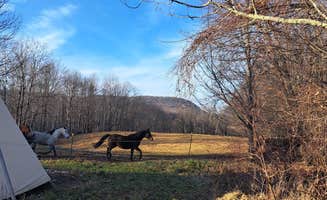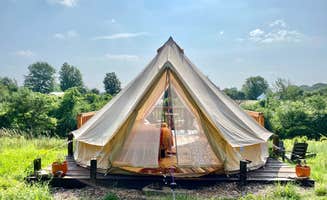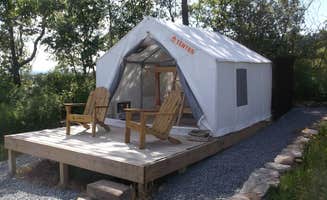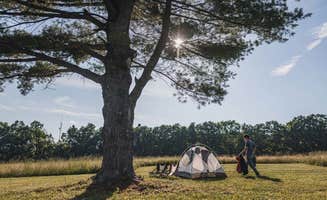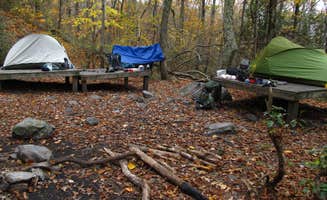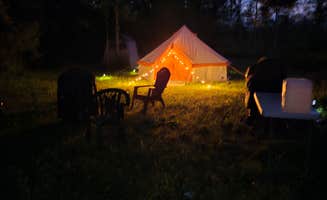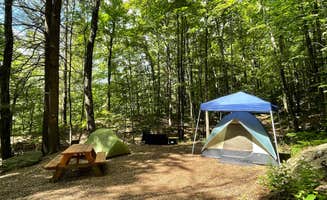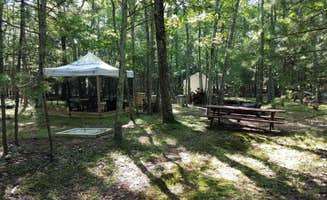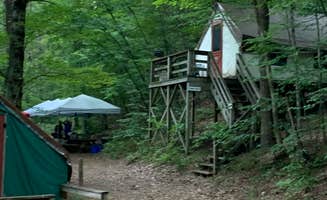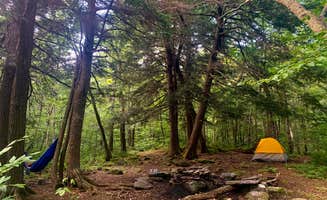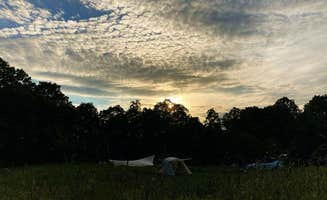Primitive tent camping near Castleton-on-Hudson offers experiences in the eastern New York State forest regions. The terrain varies from rolling hills to wetland areas with elevations ranging from 300 to 1,500 feet. Summer temperatures typically range from 55-85°F with higher humidity levels, while spring and fall camping often requires preparation for overnight temperatures that can drop into the 40s.
What to do
Hiking trail exploration: The Appalachian Trail sections near Alander Trail Campground provide challenging day hikes with significant elevation changes. "You'll be hiking on some of the steepest parts of the Appalachian Trail in the northwestern Connecticut and southwestern Massachusetts," notes one camper who completed an overnight trek through the area.
Wildlife viewing: Early morning hours at the primitive sites around Duck Pond Campsite offer tranquil opportunities for bird watching and wildlife spotting. The relatively undisturbed environment creates natural habitat zones. A visitor mentioned, "So few people passed by and very unknown quite and we just loved the experience."
Lake activities: Swimming and fishing opportunities exist at several water features in the region, particularly at Echo Lake where tent sites provide convenient water access. A backpacker noted, "There are tent sites around the whole lake with fire pits and 1 lean-to site at the end of the trail when you first arrive at the lake."
What campers like
Elevated camping spots: Several sites around Echo Lake feature higher elevation positions that provide better airflow during humid summer months. One camper reported, "We camped on the hill with a beautiful view of the whole lake and breeze."
Privacy between sites: Laurel Ridge offers well-separated camping areas for those seeking solitude. A visitor commented, "It's quite a hike to get to this dispersed campground, so be prepared! We packed on our backpacks early in the morning and arrived there mid-afternoon."
Bear protection infrastructure: Multiple primitive camping areas feature bear boxes for food storage. As one Brassie Brook visitor noted, "There's also a bear box near by. Room to camp your tent on the ground too if you wanted to or had more ppl along."
What you should know
Road access challenges: Many dispersed sites require navigation on unpaved roads that can deteriorate seasonally. A Duck Pond visitor cautioned, "The road in on old cemetery rd was pretty rough, so we decided to go out the other way, which was way worse."
Water availability: Most primitive camping areas lack potable water sources. Campers must transport sufficient drinking water for their entire stay, with standard recommendations of 1 gallon per person per day during summer months.
Seasonal considerations: Spring camping often encounters muddy conditions as snow melt and rainfall create saturated ground conditions. Fall camping typically offers drier tent sites but requires warmer sleeping gear as temperatures can drop below 40°F overnight.
Tips for camping with families
Beginner-friendly options: Brassie Brook Shelter provides established sites that work well for families new to primitive camping. "Brassie Brook has a small lean-to as well as about 4/5 campsites located all around. Firepits, toilets but that's about it," explains a visitor who found the area suitable for an overnight stay.
Bug prevention: Areas near water features require additional insect protection, particularly during early summer. Sites farther from water bodies generally have fewer mosquito issues. One camper at Echo Lake advised, "Note, it can get swampy near the edge of the lake so you may want to bring bug spray."
Campsite selection timing: Popular primitive areas fill quickly on summer weekends. A frequent visitor observed, "It does get a little crowded later in the day so you may have to share space with others and it can be a little noisy at night."
Tips from RVers
Vehicle clearance requirements: Access roads to dispersed camping areas typically require vehicles with higher ground clearance. Standard passenger cars may risk undercarriage damage on rutted dirt roads, particularly after rainfall events.
Limited turnaround space: Many forest access points have constrained parking areas that make maneuvering larger vehicles difficult. Consider scouting locations first without towing if attempting to access more remote areas with RVs smaller than 20 feet.
Seasonal road closures: Access roads to primitive camping areas may become impassable or officially closed during winter months and spring thaw periods, typically November through April depending on elevation and seasonal conditions.


